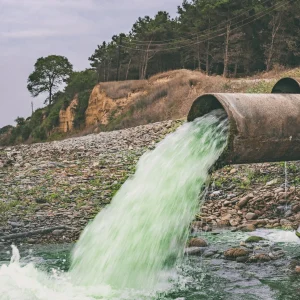
Unhealthy water effects. Water quality can be compromised and made unhealthy by a number of factors, including chemical pollution and microbial contaminants. Ensuring access to safe and clean water requires addressing these problems through efficient treatment, appropriate disposal procedures, and environmental protection. Water is necessary for life, yet it can become unhealthy due to a number of circumstances. Both individuals and communities are at risk for health problems due to contaminated water. It is essential to comprehend these elements in order to guarantee access to clean drinking water.
UNHEALTHY WATER EFFECTS
Children, the elderly, and people with compromised immune systems are particularly affected by unhealthy water, which can cause short-term problems like diarrhea, vomiting, and cramps from pathogens as well as long-term problems like cancer, organ damage (kidney, liver), neurological disorders, reproductive problems, and weakened immunity due to chemical, heavy metal (lead, mercury, arsenic), and industrial pollutants.
Common Contaminants;

1. Microbial Contaminants:
Bacteria, viruses, and parasites are significant threats to water quality. Pathogens such as E. coli, Giardia, and Cryptosporidium can cause gastrointestinal illnesses and other infections. These contaminants often enter water sources through inadequate sanitation and wastewater treatment.
2. Chemical Pollutants:

UNHEALTHY WATER EFFECTS
Water can become contaminated with harmful chemicals from various sources. Pesticides, heavy metals (such as lead and mercury), and industrial chemicals (like PCBs) can seep into water supplies through runoff or improper disposal. These pollutants can have severe health effects, including neurological damage and cancer.
3. Nutrient Overload:
Excess nutrients, particularly nitrogen and phosphorus, from agricultural runoff can lead to eutrophication. This process results in excessive algae growth, which depletes oxygen in the water and can produce toxins harmful to aquatic life and humans.
4. Pharmaceuticals and Personal Care Products:
Residues from medications and personal care products can enter water supplies through improper disposal or human waste. These substances can disrupt endocrine systems and impact both human and aquatic health.
5. Physical Contaminants:

UNHEALTHY WATER EFFECTS
Sediments, debris, and other physical materials can affect water quality by increasing turbidity, which can reduce the effectiveness of disinfection and harm aquatic ecosystems.
Prevention and Mitigation;
1. Water Treatment:
Effective water treatment processes, including filtration, chlorination, and UV disinfection, are essential for removing contaminants and ensuring water safety.
2. Proper Waste Disposal:
Proper disposal of chemicals, pharmaceuticals, and waste helps prevent pollutants from entering water sources.
3. Sanitation Practices:

UNHEALTHY WATER EFFECTS
Improved sanitation and sewage treatment reduce the risk of microbial contamination in water supplies.
4. Environmental Protection:
Protecting water sources from agricultural runoff, industrial discharge, and other pollutants helps maintain water quality and ecosystem health.
Summary
You may become ill with diarrhea, vomiting, and stomach pain if you drink tainted or filthy water. If you use tainted water to cook, wash food, prepare drinks, make ice, or brush your teeth, you could become ill. Swimming or wading in contaminated water can also result in disease.
Pingback: Chapped lips treatment and prevention